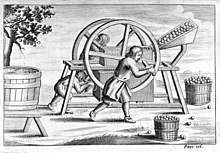
A toxic heavy metal is any relatively dense metal or metalloid that is noted for its potential toxicity, especially in environmental contexts. The term has particular application to cadmium, mercury and lead, all of which appear in the World Health Organization's list of 10 chemicals of major public concern. Other examples include manganese, chromium, cobalt, nickel, copper, zinc, silver, antimony and thallium.

Richard was an English prince who was King of the Romans from 1257 until his death in 1272. He was the second son of John, King of England, and Isabella, Countess of Angoulême. Richard was nominal Count of Poitou from 1225 to 1243, and he also held the title Earl of Cornwall from 1225. He was one of the wealthiest men in Europe and joined the Barons' Crusade, where he achieved success as a negotiator for the release of prisoners and assisted with the building of the citadel in Ascalon.
Samuel Musgrave, FRS was an English classical scholar and physician.
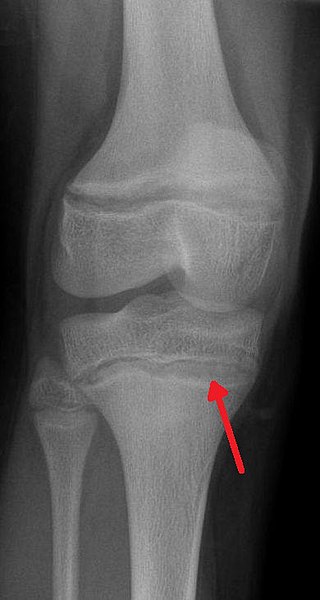
Lead poisoning, also known as plumbism and saturnism, is a type of metal poisoning caused by lead in the body. Symptoms may include abdominal pain, constipation, headaches, irritability, memory problems, infertility, and tingling in the hands and feet. It causes almost 10% of intellectual disability of otherwise unknown cause and can result in behavioral problems. Some of the effects are permanent. In severe cases, anemia, seizures, coma, or death may occur.

Wassail is a beverage made from hot mulled cider, ale, or wine and spices, drunk traditionally as an integral part of wassailing, an ancient English Yuletide drinking ritual and salutation either involved in door-to-door charity-giving or used to ensure a good harvest the following year.
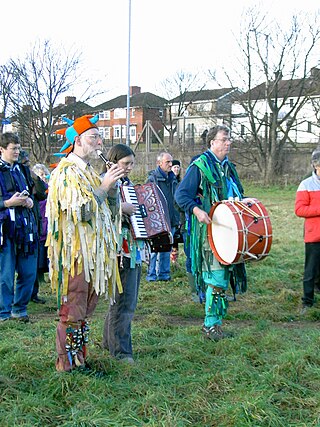
The tradition of wassailing falls into two distinct categories: the house-visiting wassail and the orchard-visiting wassail. The house-visiting wassail is the practice of people going door-to-door, singing and offering a drink from the wassail bowl in exchange for gifts; this practice still exists, but has largely been displaced by carol singing. The orchard-visiting wassail refers to the ancient custom of visiting orchards in cider-producing regions of England, reciting incantations and singing to the trees to promote a good harvest for the coming year. Notable traditional wassailing songs include "Here We Come a-Wassailing", "Gloucestershire Wassail", and "Gower Wassail".

Opisthotonus or opisthotonos is a state of severe hyperextension and spasticity in which an individual's head, neck and spinal column enter into a complete "bridging" or "arching" position.

Rear Admiral Sir Thomas Troubridge, 1st Baronet was a Royal Navy officer. As a junior officer he saw action at the Battle of Sadras in February 1782 during the American Revolutionary War and the Battle of Trincomalee in September 1782 during the Anglo-French War. He commanded the third-rate Culloden at the Battle of Cape St Vincent in February 1797 during the French Revolutionary Wars. He went on to be First Naval Lord and then served as Commander-in-Chief, East Indies, during the Napoleonic Wars.
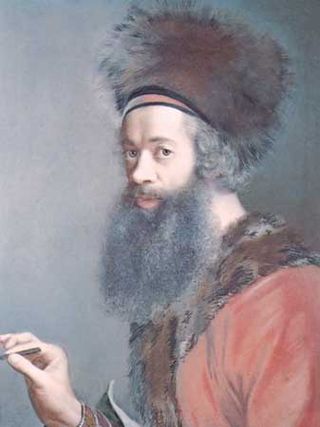
Jean-Étienne Liotard was a Swiss painter, art connoisseur and dealer. He is best known for his portraits in pastel, and for the works from his stay in Turkey. A Huguenot of French origin and citizen of the Republic of Geneva, he was born and died in Geneva, but spent most of his career in stays in the capitals of Europe, where his portraits were much in demand. He worked in Rome, Istanbul, Paris, Vienna, London and other cities.
Thomas Alcock was a clergyman in the Church of England, a pluralist and an author.

Aston Manor Cider is a former brewery and current cider maker and bottling company in Aston, Birmingham, England. Having started out as a beer brewery, the company now produces exclusively cider and perry. In 2008 it was the third largest cider company in the UK by market share, and the fourth largest in the world. In August 2018 Aston Manor cider was acquired by French co-operative Agrial.
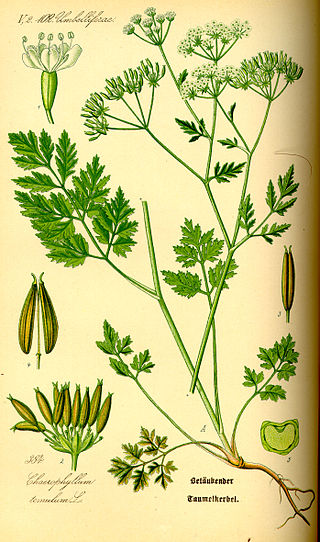
Chaerophyllum temulum, the rough chervil, is a species of flowering plant in the family Apiaceae.

Théodore Tronchin was a physician from the Republic of Geneva.

William Musgrave was a British physician and antiquary.

An alcoholic beverage is a drink that contains ethanol, a type of alcohol that acts as a drug and is produced by fermentation of grains, fruits, or other sources of sugar. The consumption of alcoholic drinks, often referred to as "drinking", plays an important social role in many cultures. Most countries have laws regulating the production, sale, and consumption of alcoholic beverages, and the temperance movement advocates against the consumption of alcoholic beverages. Regulations may require the labeling of the percentage alcohol content and the use of a warning label. Some countries ban such activities entirely, but alcoholic drinks are legal in most parts of the world. The global alcoholic drink industry exceeded $1 trillion in 2018.
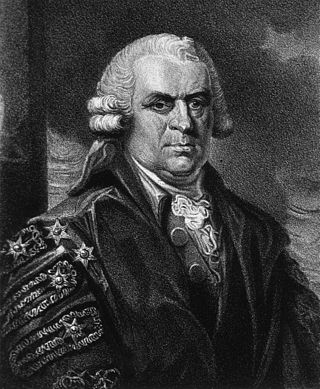
Sir George Baker, 1st Baronet, FRS, FSA was physician to King George III.
The 1951 Pont-Saint-Esprit mass poisoning, known in French as Le Pain Maudit, took place on 15 August 1951, in the small town of Pont-Saint-Esprit in Southern France. More than 250 people were involved, including 50 people interned in asylums, and there were seven deaths. A foodborne illness was suspected; among these it was originally believed to be a case of "cursed bread".

Théodore Tronchin (1582–1657) was a Genevan Calvinist theologian, controversialist and Hebraist.
Cider in the United Kingdom is widely available at pubs, off licences, and shops. It has been made in regions of the country where cider apples were grown since Roman times; in those regions it is intertwined with local culture, particularly in the West Country.
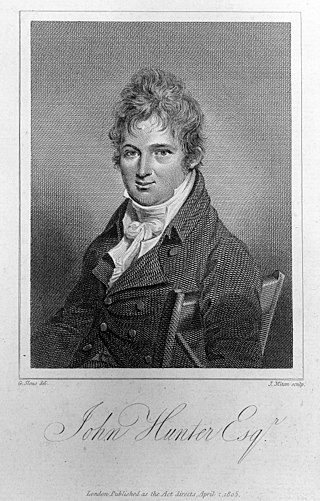
Dr John Hunter FRSE (1754–1809) was a Scottish physician linked to Jamaica.

